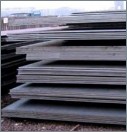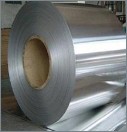Heat Resistant Steel Plates
Whether you need an offshore specification Heat Resistant Steel Plate in Singapore, Heat Resistant Steel Plate in Indonesia, or a pressure vessel plate in Saudi Arabia, we have floating stock of 800 ton Steel plates and logistical skills to deliver what you want when you need it.
At our stockyard / warehouse in Kalamboli, Navi Mumbai, Maharashtra, INDIA Steel Plates are available in a wide range of special metal grades like Manganese Steel, Alloy Steel, and Stainless Steel in numerous specifications. All Steel Plates Stocks are held to ASME, ASTM, EN, and API, Steel Plates are always available in surplus stock up to 15 metres long, 4 metres wide, and 300 millimetres thick. We are able to offer a solution to virtually any sourcing problem about Steel Plates.
R-Pipe Overseas is the only supplier of Heat Resistant Steel Plate, Plate, Abrex 400 Steel Plate, Wear Resistant Steel, Sailhard Tiscral Las 07 Plate, Ar 400 Plate, High Manganese Plate, Hardfield Manganese Plate, Welten 780E Plate in India who delivered steel plates to Saudi Arabia in 3 days, to Sri Lanka in 2 days, to Iran in 8 days, to Singapore in 12 days, to Kuwait in 5 days, to United Arab Emirates in 3 days, to Japan in 10 days, to Qatar in 4 days, to Indonesia in 7 days & to Taiwan in 5 days. In Short R Pipe overseas has proven record that We are the only one who can supply Steel Plates to Gulf & Asian countries in minimum lead time, So If you want to buy Heat Resistant Steel Plate from reliable supplier & Steel Plates specialiest in INDIA, check our free quote with minimum delievery time to your country which you will receive within an hour.

Heat Resistant Steel Plates
Heat Resistant Steel refers to the steel which is capable of resist scaling at temperature above 500°C. The heat resistant steel grades are not exposed to mechanical stress, owing to its oxidized layer which is created throughout the developing process when the steel is exposed to gentle and strong oxidizing conditions at elevated temperatures.
This steel is adherent and its intense oxide layers provides the heat resistance of the material. It is capable of upholding processes when exposed, either continuously or erratically, to operating temperatures which result in metal temperatures in excess of 650°C. The heat resistance of the steel depends on its chromium, silicon and aluminum content.
Heat resistant steels can be classified on the basis of their microstructure as follows :
| Classification of heat resistant steel | The most important steel grades | Properties | Fields of application |
|---|---|---|---|
| Ferritic, ferritic-martensitic, marensitic heat-resistant steel | Wnr. 1.4724 Wnr. 1.4742 Wnr. 1.4762 |
|
|
| Austenitic heat-resistant steel | Wnr. 1.4828 Wnr. 1.4841 Wnr. 1.4845 |
|
|
High Temperature Steels
Owing to its higher resistance to chemical and mechanical degradation at elevated temperatures, high temperature steels is extensively demanded in the market. Due to their characteristics such as corrosion resistance, oxidation resistance, hydrogen brittleness and creep resistance these are ideal choice for high temperature working environments.
The steel is classified on the basis of its micro-structure, which can be ferritic-austenitic (duplex), ferritic, austenitic and martensitic. The structure of steel grade is determined by its chemical composition.

High Temperature Steels
| Classification of stainless steel | Steel Grades | Properties | Fields of application |
|---|---|---|---|
| Ferritic stainless steel | Wnr. 1.4000 Wnr. 1.4016 Wnr. 1.4512 Wnr. 1.4113 etc. |
|
|
| Martensitic stainless steel | Wnr. 1.4006 Wnr. 1.4021 Wnr. 1.4028 Wnr. 1.4057 Wnr. 1.4034 etc. |
|
|
| Austenitic stainless steel | Wnr. 1.4301 Wnr. 1.4305� Wnr. 1.4306 Wnr. 1.4541 Wnr. 1.4571 etc. |
|
|
| Austenitic- ferritic (duplex) stainless steel | Wnr. 1.4460 Wnr. 1.4462 |
|
|
Our Sales Associates are available in below Countries :
India, United Arab Emirates, Canada, Angola, Argentina, Austria, Peru, Chile, Spain, France, United Kingdom, Indonesia, Israel, Iran, Kuwait, Mexico, Malaysia, Nigeria, Serbia, Singapore, Taiwan, Chile, Brazil, Colombia, Ghana, Iran, Denmark, Poland, Costa Rica, Egypt, Iraq, Jordan, South Korea, Poland, Azerbaijan, Pakistan, Kazakhstan, Sri Lanka, Lithuania, Norway, Oman, Philippines, Saudi Arabia, Bangladesh, United States, Qatar, Russia, Vietnam, South Africa, Nigeria, Mexico, Turkey, Hungary, Algeria, Belarus, Belgium, Bhutan, Lebanon, Morocco, Mongolia, Bolivia, Bulgaria, Australia, Afghanistan, Bahrain, Croatia, Venezuela, Ecuador, Netherlands, Czech Republic, Estonia, Finland, Greece, Italy, Japan, Libya, Romania, Thailand, Trinidad & Tobago,Tunisia, Ukraine, Yemen, Hong Kong, Gabon, China, Portugal, Switzerland, New Zealand, Sweden, Slovakia, Kenya
Our Dealers and Distributors are available in below Cities :
Mumbai, Pimpri-Chinchwad, Vadodara, Kolkata, Gurgaon, Chennai, Surat, Dubai, Seoul, Hyderabad, Singapore, Abu Dhabi, Ahmedabad, New Delhi, Bengaluru, Tehran, Calgary, Noida, Riyadh, London, Kuala Lumpur, Rio de Janeiro, Dammam, Coimbatore, Jakarta, Istanbul, Bangkok, Kuwait City, Sharjah, Muscat, Edmonton, Busan, Bhopal, Ulsan, Faridabad, Houston, Jeddah, Aberdeen, Cairo, Geoje-si, Perth, Santiago, Chandigarh, Indore, Melbourne, Madrid, Thane, Navi Mumbai, Pune, La Victoria, Bogota, Lahore, Los Angeles, Algiers, Chiyoda, Ankara, Ho Chi Minh City, Toronto, Hong Kong, Rajkot, Brisbane, Petaling Jaya, Ernakulam, Secunderabad, Gimhae-si, Al Jubail, Port-of-Spain, Thiruvananthapuram, Milan, Ludhiana, Moscow, Dallas, Haryana, Colombo, Atyrau, Lagos, Hanoi, Howrah, Sydney, Ahvaz, Mexico City, Doha, Karachi, New York, Caracas, Vung Tau, Al Khobar, Manama, Montreal, Granada, Courbevoie, Visakhapatnam

